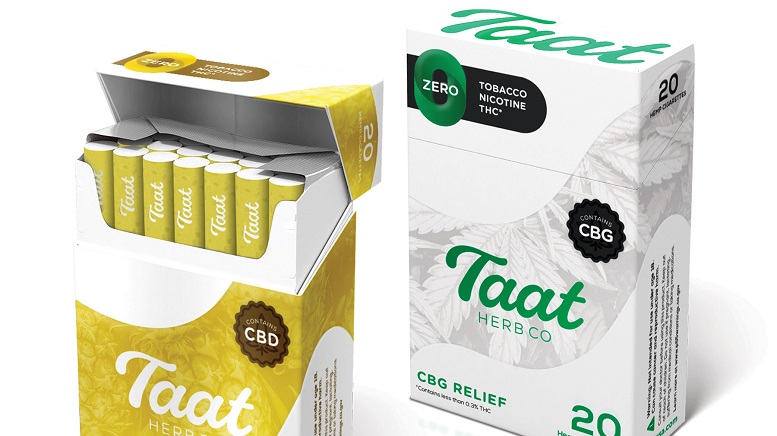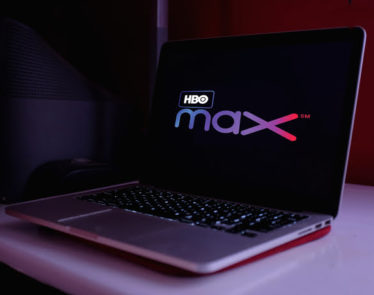
Menthol cigarettes represent US $80 billion out of the US $814 billion global tobacco market, and a 36% share of the U.S. tobacco market alone. With menthol cigarette bans passed in jurisdictions to include Brazil, Canada, and the European Union, the Company has identified unmet demand that could continue to persist as more jurisdictions follow suit. Taat Beyond Tobacco™ cigarettes are to be offered in a menthol variety, which can appeal to menthol cigarette smokers. With a near-term planned product launch on track for Q4 2020, TAAT LTD believes Taat Beyond Tobacco™ cigarettes are well-positioned to capitalize on current and emerging trends relating to menthol cigarettes.
LAS VEGAS and VANCOUVER, British Columbia, July 06, 2020 (GLOBE NEWSWIRE) — Taat Lifestyle & Wellness Ltd. (CSE:TAAT)(the “Company” or “TAAT LTD”) has identified a significant opportunity to compete in the menthol cigarettes category of the global tobacco market with its menthol variety of Taat Beyond Tobacco™ cigarettes. At a global level, the menthol cigarette category was valued by Grand View Research at USD $80 billion in 2018, with a predicted compounded annual growth rate of 3.1% between 2019 and 20251. Despite this projected growth, the Company believes that there is significant unmet demand which can potentially continue to be unmet as several government bodies worldwide have banned or have sought to ban menthol cigarettes, which began with a nationwide ban being passed in Brazil in 20122, with Canada following closely thereafter finalizing a federal ban on menthol cigarettes in October 20173. Characterized by a unique cooling sensation from menthol (a substance derived from plants such as peppermint and spearmint), menthol cigarettes are believed by many smokers to be less harmful than traditional tobacco cigarettes, although according to the U.S. National Cancer Institute there is no evidence to substantiate this notion4.
The Company has developed Taat Beyond Tobacco™ cigarettes as a better-for-you alternative to traditional cigarettes in an “Original” tobacco flavour, as well as a “Menthol” version, neither of which contain nicotine or tobacco. The user experience of Taat Beyond Tobacco™ cigarettes is designed to replicate that of a traditional cigarette between the “stick” format, cigarette-style packaging, a proprietary flavouring blend, and an enhanced volume of smoke exhaled. Taat Beyond Tobacco™ cigarettes each contain a minimum of 50mg of cannabidiol (“CBD”, a non-psychoactive derivative of hemp), which has been shown to mitigate tobacco withdrawals and reduce dependency. Initial retail market testing of Taat Beyond Tobacco™ cigarettes, as detailed in the Company’s June 29, 2020 press release, yielded overwhelmingly positive responses from users, whose anecdotes formed a general consensus that there were no significant experiential differences between Taat Beyond Tobacco™ cigarettes and legacy tobacco products.
Menthol, which is also commonly used in non-tobacco products such as lozenges, ointments, and candy, was first added to cigarettes in the 1920s. The tobacco industry presented menthol cigarettes as a supposedly healthier alternative to regular cigarettes, which was part of a strategy to target beginner smokers who had health concerns regarding smoking4. Kools, the first major brand of menthol cigarettes, was founded in 1933 and gained a 2.2% market share by 1935 with the purported benefit of “throat comfort”. Beginning in the mid-1950s, tobacco producers also began offering menthol cigarettes under standalone brands, including R.J. Reynolds (Salem), Lorillard (Newport, Spring), and Philip Morris (Alpine)5.
Following several decades of popularity for menthol cigarettes, in 2012 the World Health Organization published guidelines recommending regulation of ingredients that seek to make tobacco smoking more attractive, to include the use of flavours such as menthol6. To date, nationwide bans have been passed in Brazil2 and Canada3, as well as across the European Union7. In February 2020, the United States House of Representatives approved a bill on a 213-195 vote which would include banning cigarette flavouring such as menthol8.
The Company believes that several current factors create an environment in which the menthol variety of Taat Beyond Tobacco™ cigarettes can potentially thrive. Foremost, there is a sustained demand for menthol cigarettes in jurisdictions in which they remain legal. As of 2018, menthol cigarettes represented 36% of all cigarettes sold in the United States, the highest ever proportion since reporting of such data by major tobacco companies was required9. A 2010 estimate by Philip Morris also showed that menthol cigarettes had a 49.4% market share in the Philippines10. Additionally, as of this writing there are no known competitor products that offer a cigarette-like smoking experience that specifically imitates menthol cigarettes. Between potentially being market-ready in just a matter of months and the combination of demand for and regulatory action against menthol cigarettes, TAAT LTD is confident in the early-stage and long-term prospects for Taat Beyond Tobacco™ cigarettes.
A chart accompanying this announcement is available at https://www.globenewswire.com/NewsRoom/AttachmentNg/7200bba6-8493-4269-a54c-51140ed7b8e5
Chart adapted from The influence of the availability of menthol cigarettes on youth smoking prevalence (Oxford Economics, December 2012)10
TAAT LTD Founder Joe Deighan commented,
“In recent years, many of the most successful innovation strategies have sought to identify unmet niche demand, as opposed to simply aligning with existing demand that is already being met. Like many other players in the tobacco space, we are abundantly aware of the mass-market demand for better-for-you alternatives to traditional cigarettes. The difference between traditional cigarettes and menthol cigarettes is that there is no existing threat to the legality of the former, whereas the latter has been banned in multiple jurisdictions, with others potentially on the horizon too. As a result, millions of menthol cigarette users are or may soon be without a choice but to stop smoking menthols. Because Taat Beyond Tobacco™ cigarettes are designed to mimic the experience of smoking a traditional cigarette, we believe that promoting the product in its menthol variety can appeal to menthol converts who may be unsatisfied by other alternatives. We plan to announce further details regarding our targeted strategy for the menthol variety of Taat Beyond Tobacco™ cigarettes as we approach our scheduled launch in Q4 2020.”
References
1 – https://www.grandviewresearch.com/industry-analysis/menthol-cigarette-market
2 – https://apps.who.int/iris/bitstream/handle/10665/205928/9789241510332_eng.pdf?sequence=1 (Page 49)
3 – https://www.fda.gov/tobacco-products/research/evaluation-canadas-menthol-ban
4 – https://smokefree.gov/quit-smoking/ecigs-menthol-dip/menthol
5 – https://www.industrydocuments.ucsf.edu/tobacco/docs/#id=pzkj0136
6 – https://www.who.int/fctc/guidelines/Guideliness_Articles_9_10_rev_240613.pdf
7 – https://trade.ec.europa.eu/doclib/docs/2016/july/tradoc_154817.pdf
8 – https://abcnews.go.com/Health/wireStory/house-approves-bill-ban-sale-flavored-cigarettes-69286647
9 – https://www.cdc.gov/tobacco/basic_information/tobacco_industry/menthol-cigarettes/index.html#:~:text=As%20of%202018%2C%20sales%20of,required%20to%20report%20those%20data.
10 – https://assets.publishing.service.gov.uk/government/uploads/system/uploads/attachment_data/file/229776/DE795779_Attachment_2_-_Oxford_Economics_The_influence_of_the_availability_of_ment.pdf
About Taat Lifestyle & Wellness Ltd.
Taat Herb Co., the flagship brand of Taat Lifestyle & Wellness Ltd. (CSE:TAAT), is an early-stage life sciences company based in Las Vegas, Nevada innovating nicotine-free and tobacco-free alternatives to traditional cigarettes. With a unique proprietary blend of all-natural ingredients and meticulous engineering of the user experience, Taat Beyond Tobacco™ cigarettes are designed to emulate every aspect of legacy tobacco products with no significant difference to the user. Taat Beyond Tobacco™ cigarettes provide benefits that include mitigation of tobacco withdrawals, and reduction of tobacco dependency. With an expert-led go-to-market strategy, the Company’s objective is to position itself in the US $814 billion (2018) global tobacco industry to capitalize on the growing worldwide demand for better-for-you alternatives to traditional cigarettes.
For more information, please visit http://taatusa.com.
References
1 British American Tobacco – The Global Market
Statement Regarding Effects of CBD on Smoking Cessation
The Beckley/Exeter research program (University of Exeter) carried out a pilot study that found after several weeks following cannabidiol (“CBD”) treatment, CBD helped tobacco smokers to reduce the amount of cigarettes smoked by as much as 40%. A follow-on study is planned, which will include a brain imaging component to examine the brain activity patterns underlying the probable therapeutic effects of CBD.
Source: https://beckleyfoundation.org/cbd-for-smoking-cessation/
Link to Study: https://www.sciencedirect.com/science/article/abs/pii/S030646031300083X
Forward Looking Statements
This news release contains “forward-looking information” within the meaning of applicable Canadian securities legislation. Often, but not always, forward-looking information and information can be identified by the use of words such as “plans”, “expects” or “does not expect”, “is expected”, “estimates”, “intends”, “anticipates” or “does not anticipate”, or “believes”, or variations of such words and phrases or state that certain actions, events or results “may”, “could”, “would”, “might” or “will” be taken, occur, or be achieved. Forward-looking information in this news release includes statements regarding the potential launch of Taat hemp cigarettes, in addition to the following: Continued popularity of menthol cigarettes in a given geographic market, and potential sustained and/or new regulatory sanctions against menthol cigarettes. The forward-looking information reflects management’s current expectations based on information currently available and are subject to a number of risks and uncertainties that may cause outcomes to differ materially from those discussed in the forward-looking information. Although the Company believes that the assumptions and factors used in preparing the forward-looking information are reasonable, undue reliance should not be placed on such information and no assurance can be given that such events will occur in the disclosed timeframes or at all. Factors that could cause actual results or events to differ materially from current expectations include: (i) adverse market conditions; (ii) changes to the growth and size of the tobacco and CBD markets; and (iii) other factors beyond the control of the Company. The Company operates in a rapidly evolving environment. New risk factors emerge from time to time, and it is impossible for the Company’s management to predict all risk factors, nor can the Company assess the impact of all factors on Company’s business or the extent to which any factor, or combination of factors, may cause actual results to differ from those contained in any forward-looking information. The forward-looking information included in this news release are made as of the date of this news release and the Company expressly disclaims any intention or obligation to update or revise any forward-looking information whether as a result of new information, future events or otherwise, except as required by applicable law.
The statements in this news release have not been evaluated by Health Canada or the U.S. Food and Drug Administration. As each individual is different, the benefits, if any, of taking the Company’s products will vary from person to person. No claims or guarantees can be made as to the effects of the Company’s products on an individual’s health and well-being. The Company’s products are not intended to diagnose, treat, cure, or prevent any disease.
This news release may contain trademarked names of third-party entities (or their respective offerings with trademarked names) typically in reference to (i) relationships had by the Company with such third-party entities as referred to in this release and/or (ii) client/vendor/service provider parties whose relationship with the Company is/are referred to in this release. All rights to such trademarks are reserved by their respective owners or licensees.









